The heavy price of keeping the west happy
The national budget is being held hostage by Australia’s richest state after a generous GST deal stuck by Scott Morrison to secure political support is now supported by Labor for the same reason.
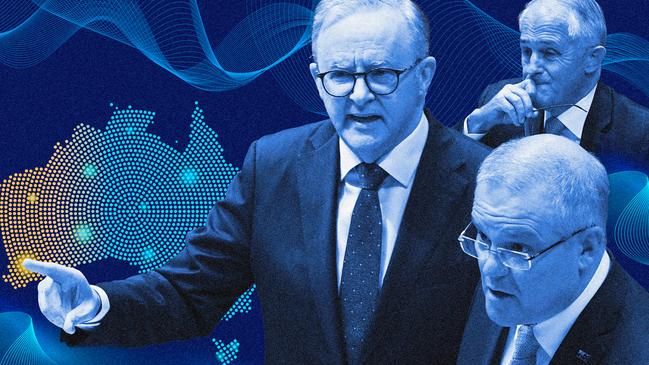
The politics and economics of the west as they shape the Federation get virtually no attention in the east – yet they are critical to the nation’s unity and social compact and, in recent times, pivotal to who becomes prime minister.
There is one certainty. Within the Federation the power of the west is rising. The rise has been basic to the fate of both Scott Morrison and Albanese and who governs in Canberra. During the pandemic WA premier Mark McGowan ran the politics of separation to keep his state largely Covid free and became the most popular leader in Australian history. Prime ministers were hostage to him.
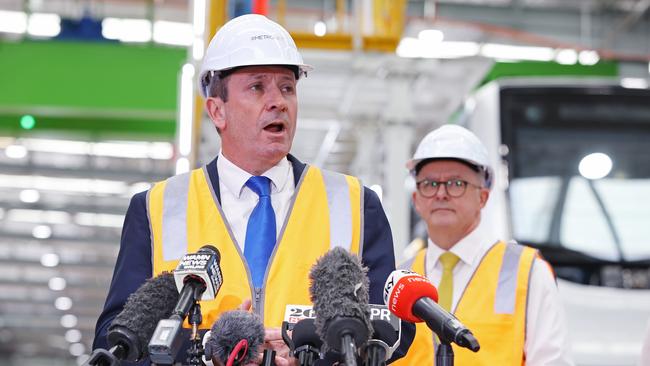
Leaders change but the power realities stay the same. Last December Treasurer Jim Chalmers announced that national cabinet – the Prime Minister and premiers – had agreed on more support for the struggling National Disability Insurance Scheme with the trade-off that the federal government would continue to honour the GST distribution deal negotiated in 2018 by Morrison when he was treasurer.
That deal is primarily about the west. It is probably unprecedented in Australian history. It is driven by political power, the power of a GST deal to shape the results of WA seats in federal elections. The deal negotiated by Morrison was bipartisan; under Chalmers it remains bipartisan. It is a special arrangement that delivers huge financial support to the richest state. Neither Labor nor the Coalition like to discuss what’s happening.
That riles independent economists Eslake and Chris Richardson, who have separately reached the same conclusion and campaign against what they condemn as a disastrous public policy with no redeeming features. “This represents a transfer of almost $40bn to the government of the richest state in Australia,” Eslake tells Inquirer. “A state that is richer than the rest of Australia by a vastly larger margin than any other state has ever been, so the citizens of that state can enjoy better public services and lower levels of state taxation than the citizens of the rest of Australia.”
Richardson tells Inquirer: “This deal is not about protecting widows and orphans. It is about funnelling money to the best-off state in the nation. If you are worried about Australia’s social compact, whether we have got this right, and if you’re looking for the dumbest thing we do, this is the stand-out.”
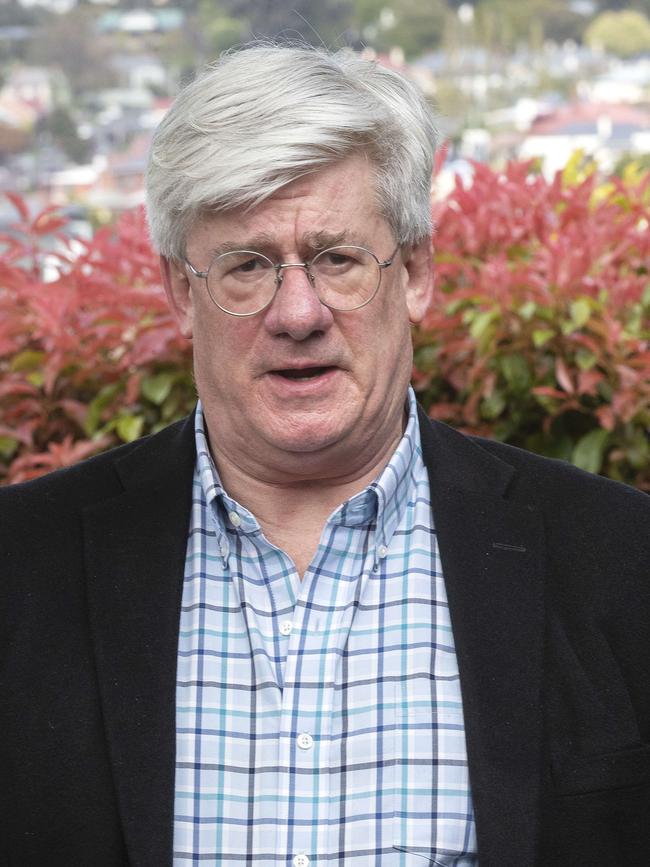
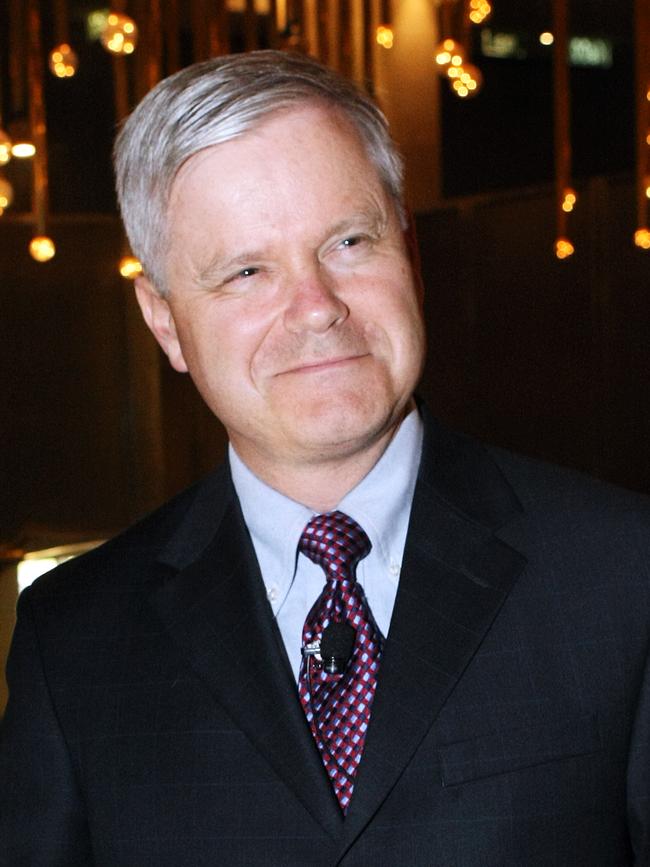
Making clear that the west will not tolerate any change, state Treasurer Rita Saffioti says Albanese Labor will risk losing “every seat in WA” if it reneges on the GST deal. Not a bad threat as threats go. But it’s not necessary, since Albanese and Chalmers are on board.
Saffioti’s threat, however, is beneficial. It confirms what the entire saga is about – West Australian seats. Richardson says of the threat: “It goes to the raw politics. We’re robbing the nation blind and you can’t stop us now.” Being fair to Chalmers, he pledges a Productivity Commission inquiry into the GST arrangements in 2026, yet Morrison’s initial decision drew on a PC inquiry, admittedly with loaded terms of reference.
Quizzed about the initial GST deal, Malcolm Turnbull justifies the decision: “There are a lot of things that work in theory from an economic point of view, but they don’t fly in political terms.” How important was the deal to Turnbull’s future given his narrow 2016 majority? “We’d have lost almost every seat in that state (WA) without it,” he says. In short, the GST deal was a survival necessity.
But it was Morrison, as prime minister in 2019, who became the beneficiary of the deal he had done as treasurer. In Morrison’s 2019 election win, he retained all the government’s seats in WA. In the west, the politics of the GST distribution extend statewide and have a statewide impact.
Turnbull recalls that when doing the deal Morrison had a row with then Tasmanian treasurer Peter Gutwein. A concerned Turnbull asked Morrison: did you use the F-word? Morrison conceded he had used the M-word. What’s this more terrible M-word, Turnbull asked. “Mendicant,” said Morrison. All was revealed.
Morrison rejects the critique of the deal made by the economists – on both financial and political grounds. “This guarantee was never a permanent arrangement,” he tells Inquirer. “It was a time-limited arrangement. It was a transition. Under the old system some states were receiving gains from a model that was out of date with Australia’s modern economy.”
The origins of the west’s deal lie deep in our history. Hardly any schoolchildren in the east know that in 1933 the people of the west voted by referendum to secede from the federation, a step thwarted by Britain. Few people grasp that we still live with the consequences.
The government of Joe Lyons authorised the Commonwealth Grants Commission to provide “impartial and independent” advice on the distribution of grants to the states, the upshot being the commission’s 1936 report that grants reflect an equity principle to enable states to deliver similar levels of government services.
When the GST was created these principles were refined as the basis of distribution to the states. For much of the 20th century WA, given its small population over a vast area, was a beneficiary getting extra funds along, of course with Tasmania. But the west was transformed by the various stages of the mining and resources boom.
Eslake adopts an infamous Paul Keating line, saying the west got “kissed on the arse by a rainbow”. Of course, it’s unfair, given the WA resources sector is Australia’s most globally successful industry. But it captures the scale of transformation; the west, long one of the weakest financial states, is now the financial powerhouse of the Federation. Its scale is unrecognised.
That may be a good or bad thing. Eslake’s analysis is that the west’s per capita gross state product is running at more than 60 per cent above the national average over the past three years – that’s up from a modest 7 per cent above the national average at the turn of the century.
He tells Inquirer: “To the best of my knowledge there has never been another time, at least not since Federation, when one state has been richer – as measured by per capital gross product – than the rest of the country by as large a margin as Western Australia has been in recent years.”
By way of comparison, Eslake says during the past 45 years the ACT’s per capita gross product has never been more than 24 per cent above the national average; history suggests Victoria’s has never been more than 12 per cent above and NSW never more than 8 per cent above the national average.
A student of Federation and a loyal Tasmanian, Eslake – who returned after three decades on the mainland to live outside Hobart in his beloved island state – has despatched his analysis to the federal Treasury. It shows, among other things, the value of the west’s iron ore production has risen from just $3.7bn in 1999-2000 to an average of $111bn a year in the past six years.
He says the iron ore price rose to over $US100 a tonne by the end of 2009, stayed above that level until mid-2014, fell to a low of just over $US40 a tonne at the end of 2015, but then rose again and has been above $US100 a tonne for most of the time since June 2020. In addition, there has been a vast increase in the volume of WA’s mineral and energy production since 2010.
Given its financial strength, WA’s share of the GST funds then fell sharply. The west highlighted its complaint – saying it was getting “less than 30c in the dollar” of GST revenues it contributed. The lament of unfairness and being “ripped off” by the east was ritualised by the local media. Morrison, a highly political treasurer, responded. Morrison’s deal put a floor under the relativity of each state to guarantee its proportion of GST revenue would not be less than 70 per cent, and then 75 per cent, of what it would receive under an “equal per capita” distribution. The floor, of course, was only relevant for the west. It was a deal for WA.
But if WA got more, it meant the other states got less – a disaster. So Morrison agreed to “top up” the GST pool so that, until 2026-27, no state or territory would be worse off. In short, WA was the big winner, there were no losers and the federal government – or the Australian people – picked up the extra bill. The national interest was the loser.
It was initially estimated to cost the federal budget $8.2bn across eight years; Eslake now estimates it has blown out to $39.2bn across 11 years and “could end up being as much as $50bn”. That’s because the higher commodity prices, the richer is WA, the more the commonwealth must contribute to honour the 70 and 75 per cent in the dollar WA pledge.
As prime ministers, Turnbull, Morrison and Albanese have all signed up. The motive in each case has been the same – seeking to hold or win WA federal seats.
In truth, the politics of the GST distribution is diabolical. That’s because the model – based on giving and taking – institutionalises winners and losers by its design.
That’s why Morrison adopted the “no worse off” extra funding provision. It was a political necessity. This harks back to one of Turnbull’s replies to his critics: the job of government is not to follow economic purism but to find solutions that work for governments and people.
Morrison tells Inquirer: “The way the GST distribution had been working was indefensible. Western Australia was put in a ridiculous position. The idea that you could have a state getting less than 70c in the dollar from the GST distribution was unfair. That was undeniable.” This is Morrison speaking as a political realist. He says there are limits to how far a state can be penalised because of its financial strength. He says he sought not just a better deal for the West but a better distribution system overall.
However, Eslake and Richardson have had enough. Lacking any political power, they use the weight of argument to highlight the financial and equity anomalies embedded in this bipartisan compact with the west.
“We’re wasting a lot of money on the NDIS but at least it’s a noble cause,” Richardson says. “This is an enormous amount of money being spent, not on a noble cause but on a political stitch-up. It’s a backroom deal. This is the biggest amount of money we are spending on what achieves the least for Australia.”
Turnbull says: “Delivering durable GST reform was, and will remain, a long-term asset for the Coalition in WA.” Well, that depends. Now, it is an indispensable asset for the Albanese government in WA but there is no certainty it will suffice for Albanese in the west at the next election.
Eslake says the initial cost of the “no worse off” guarantee was predicated on the assumption that iron ore prices would fall back to and remain at $US55 a tonne – meaning that in turn the guarantee wouldn’t cost the budget too much. He says that with the federal budget now in structural deficit – despite its current, transitionary surplus – the federal government presides over a transfer of almost $40bn to the WA government, “the only government in Australia, and one of the few in the world, which is running and expects for the foreseeable future to run persistent budget surpluses – so that they can run even bigger ones”.
He says: “How that can be reconciled with any serious concept of equity, let alone fiscal prudence, is surely beyond comprehension.”
Eslake says the distribution of revenue from the GST is the “largest single expenditure program in the federal budget”. It totals $92.5bn in the 2013-24 budget, far above the cost of the Age Pension or the NDIS. He accepts the principle at work – the stronger states support the weaker states in the cause of delivering the goal of government services equality. His objection is to the WA redistribution.
Asked about the scale of the policy failure, he says: “I would say it is a corruption, not in the NSW police force sense but a corruption relating to the biggest spending program in the federal budget.
“The principle here, that it shouldn’t matter where you live to determine your access to health and education, that principle goes back to the 1930s. That’s when it was first promulgated by the Grants Commission in the aftermath of the referendum in Western Australia. It should be upheld.”
The story of the impact of the west on national politics is heavily tied to Morrison. One of his most disastrous decisions – perhaps the most fatal he made as prime minister – was initially to back Clive Palmer’s High Court challenge to the pandemic-induced border closure by McGowan. McGowan tried to dissuade him, but only too late did Morrison realise the damage and withdraw from the challenge. But he had given Albanese his campaign: that Morrison wanted to sabotage the closed border that kept the west safe from Covid.
Albanese is Prime Minister today courtesy of the west, where he won four seats to deliver his one seat 2022 election victory. Morrison’s success in the west at the 2019 election, when he held 11 of the 16 seats, turned into ashes at the 2022 election.
WA is now the strongest fiscal state in the nation. Indeed, most West Australians are proud of this fact. They have every reason to be proud. It is also a fact WA governments, McGowan in the lead, have extracted huge benefits for their state. That, after all, is the job of a premier. McGowan, in retrospect, shouldn’t be criticised. His achievements were extraordinary.
Asked why he was campaigning to unwind the GST deal when both major parties supported it, Eslake says: “Until three weeks ago both major parties supported the stage three tax cuts and now neither of them does.
“The Prime Minister’s defence against the charge he had broken a promise – which he has done – is that circumstances around the stage three tax cuts had changed dramatically since they were legislated. But haven’t the circumstances around this issue also changed dramatically?” Eslake points to the cost explosion in the policy and the fact the federal budget, expected back in 2019 to be heading into surplus, is now projected to be in a long-run structural deficit. They constitute a significant change in circumstances.




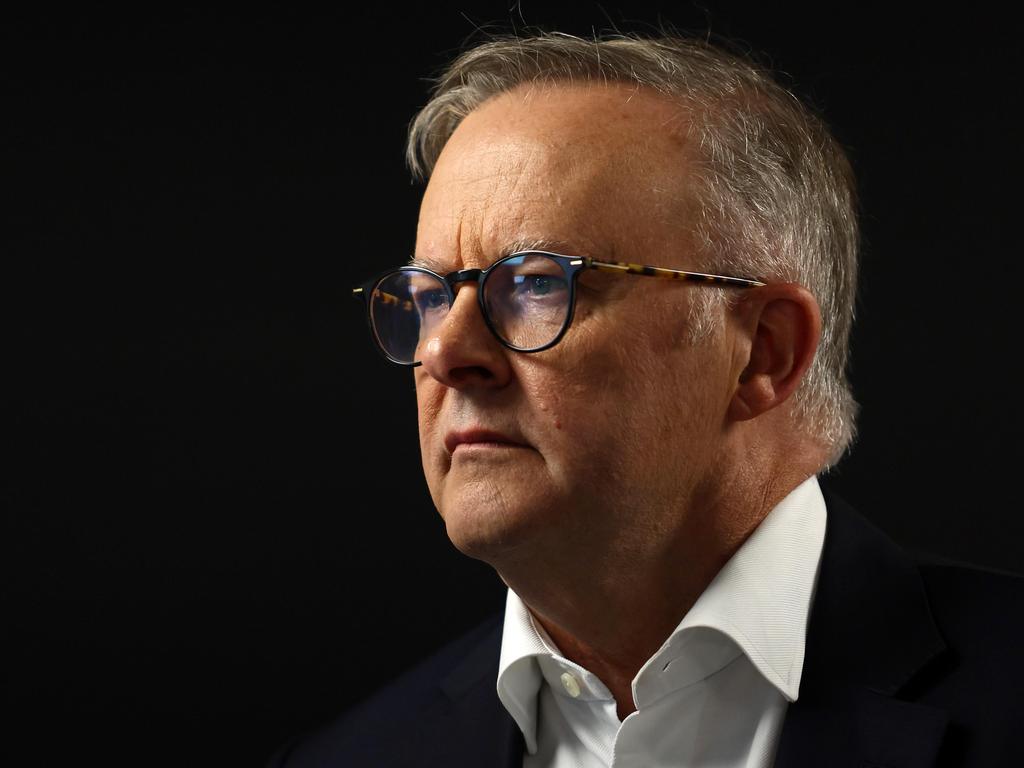



Western Australia made Anthony Albanese prime minister in 2022 and will vote to keep him in office only if the Albanese government honours what economist Saul Eslake calls “the worst Australian public policy decision of the 21st century” – and predictably Labor is honouring the deal.